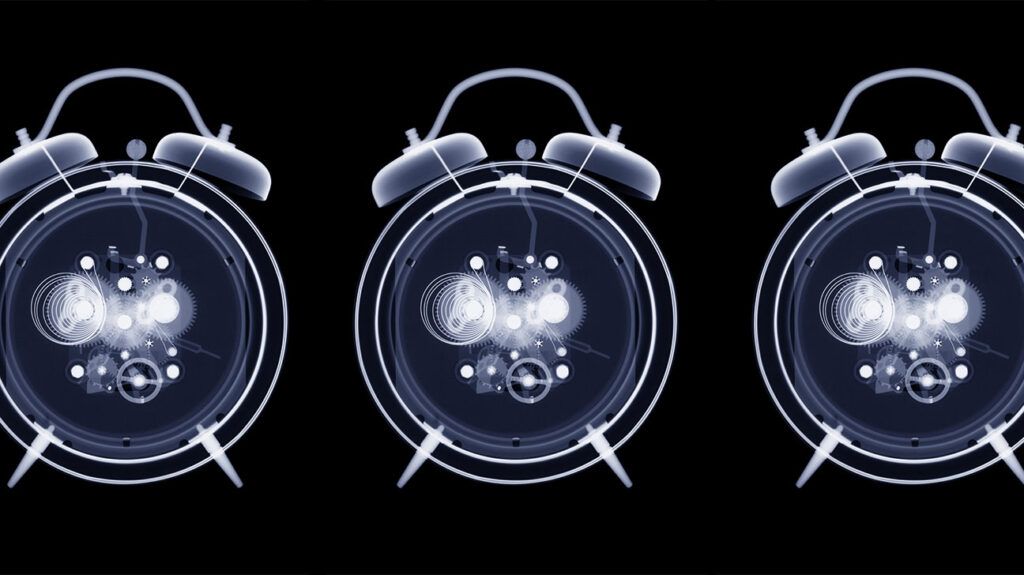
- Individuals with sleep durations of five or fewer hours per day could have an increased risk of developing type 2 diabetes.
- Researchers also reported that eating a healthy diet did not lower the risk of type 2 diabetes from insufficient sleep.
- However, they added that daily exercise might decrease the risk of diabetes and offset the results of insufficient sleep.
People who regularly sleep five hours or less per night are at a higher risk of developing type 2 diabetes, regardless of their diet, according to a
Researchers used data from 247,867 participants between the ages of 38 and 71, with a mean age of almost 56, from the UK Biobank to examine the connection between sleep patterns, eating habits, and type 2 diabetes.
Participants completed an electronic questionnaire asking, “About how many hours of sleep do you get every 24 hours, including naps?” They also answered questions about their diet.
The scientists grouped the participants into one of four categories of daily sleep duration:
- 7-8 hours – normal
- 6 hours – mildly short
- 5 hours – moderately short
- 3-4 hours – extremely short
About 75% of participants reported normal sleep duration; nearly 20% reported mildly short duration, almost 4% reported moderately short, and less than 1% reported extremely short sleep duration.
Scores for diet ranged from 0 (unhealthy) to 5 (healthy). Participants’ scores were:
- 1% scored 0
- 7% scored 1
- 17% scored 2
- 27% scored 3
- 29% scored 4
- 17% scored 5
The researchers noted that prolonged periods of insufficient sleep can contribute to various health problems, including an increased risk of type 2 diabetes. Indeed, they found that people sleeping 5 hours or less per day had a higher risk of type 2 diabetes compared to those with a normal sleep duration.
The average follow-up period for the study was 12 years. During this time, 3% (7,905) of participants developed type 2 diabetes.
The scientists indicated that increasing daily sleep duration to seven hours might reduce the risk of developing type 2 diabetes.
However, they acknowledged that for some people, challenges could make it difficult to achieve this goal. Some obstacles include work schedules, child care responsibilities, health conditions such as sleep apnea, and economic pressures.
“This is not surprising to me,” said Dr. Pouya Shafipour, a family and obesity medicine physician at Providence Saint John’s Health Center in California who was not involved in the study.
“When you don’t sleep well or for long enough, your insulin levels can be off. You might be hungrier than normal the next day, so your food consumption is also off. Over the long term, these can contribute to developing diabetes,” Shafipour told Medical News Today.
“Although I wasn’t surprised, it was reassuring because it provides proof of what I have been saying,” he added. “I can share this information with my patients that they shouldn’t ignore their sleep. Too often, individuals do not make sleep a priority. People use their phones and play games when they should be sleeping. Sleep hygiene is so important to overall health.”
Although participants with healthy diets did have a lower risk of developing type 2 diabetes, the researchers said the study results did not support the idea that a healthy diet could offset short sleep duration.
The researchers did point out a healthy lifestyle might lower the risk of diabetes.
They identified a small 2021 study suggesting that high-intensity exercise reduced the risk of developing type 2 diabetes.
Additionally, they noted that a population-based cohort study also using participants from the UK Biobank, found that individuals with short sleep durations who engaged in regular physical activity could lower their risk of developing diabetes.
“Exercise directly influences skeletal muscles, which are essential for regulating blood glucose levels. It boosts the expression of glucose transporters in these muscles, enhancing the uptake of glucose from the bloodstream,” Christian Benedict, PhD, one of the authors of the study and an associate professor in the Department of Pharmaceutical Biosciences at Uppsala University in Sweden, told Medical News Today. “While maintaining a healthy diet, such as consuming more complex carbohydrates, also positively impacts blood sugar levels, its effects may not be as significant as those of exercise in counteracting impaired blood glucose control resulting from sleep loss.”
But not everyone agrees with that assessment.
“I don’t agree that vigorous exercise can lower the risk of diabetes – maybe in the short term – but I don’t believe it can take the place of regular sleep,” Shafipour said. “Diet and exercise are important – but so is sleep.”
The researchers did not look at different types of diets, so it isn’t clear whether eating plans such as the Mediterranean diet would lower the risk of diabetes in people with short sleep durations.
In addition, macronutrients and micronutrients were not explored in this study, so it’s not certain if they can counter the effects of short sleep durations.
Another limitation is that sleep duration and dietary habits were self-reported.
